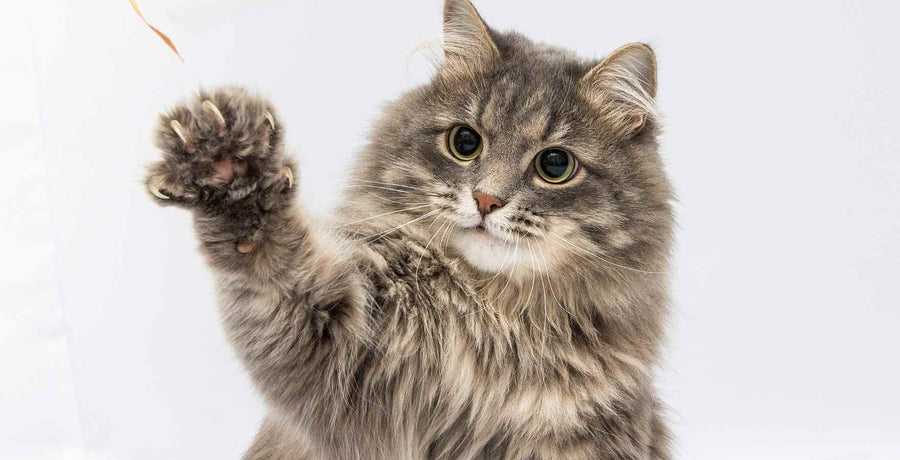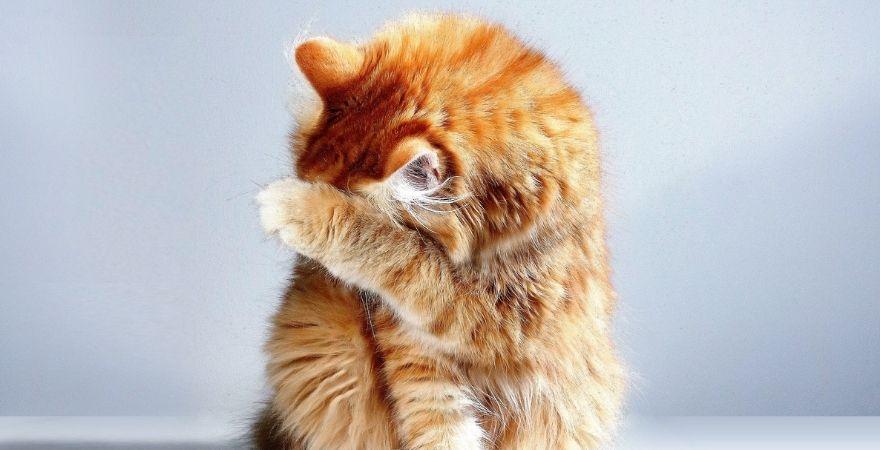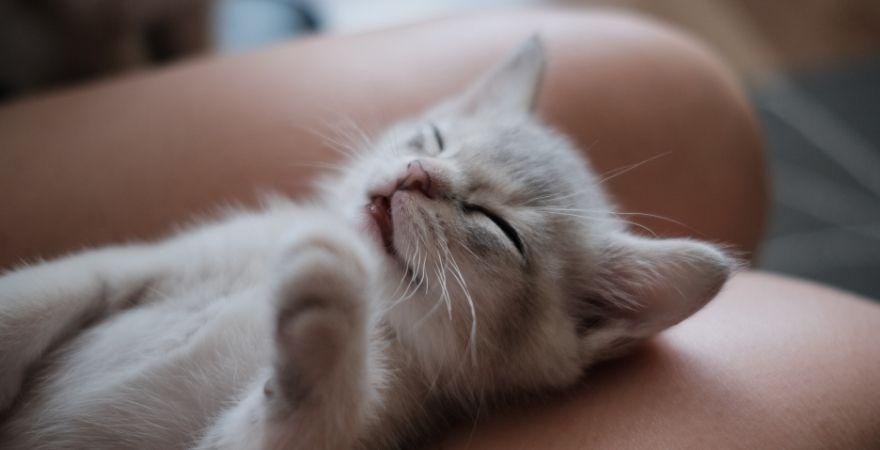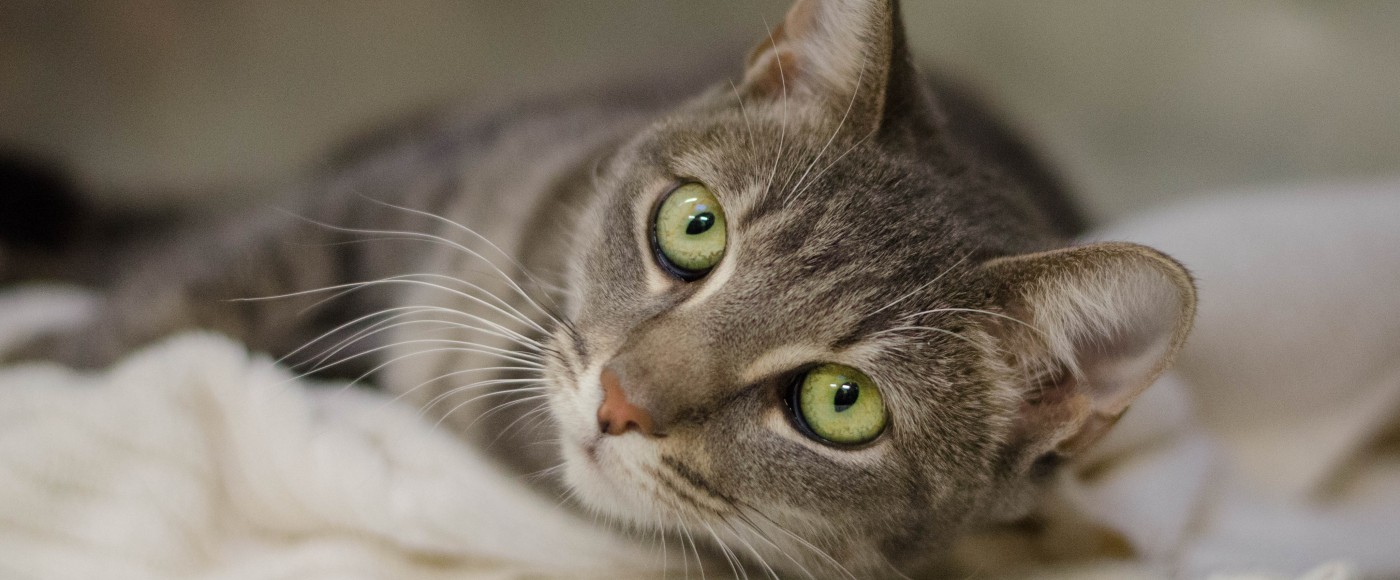
I’ve already written a bit about chronic kidney disease (CKD), and the challenges of getting your cat back on an even keel if they’ve been diagnosed with it.
We’ve also looked a little bit at proteinuria—what it is, why it makes such a difference to your kitty’s health and how you can go about addressing it with a renal friendly diet.
In this two part blog, I’m going to join the dots! After all, there’s a direct causal line between CKD, the risks of proteinuria and building a good dietary strategy to handle these health problems.
FIRST, HERE’S THE SCOOP ON CKD

Right off the bat, if Colonel Fluffy Mittens (or whatever cool name you have for your cat!) is diagnosed with CKD, you shouldn’t feel guilty!
A lot of folks wonder what they did wrong to allow their pet to come down with a chronic disease, but the simple fact is, it may have been inevitable.
Up to 50% of cats 15 years of age or older have chronic kidney disease (CKD). Just like humans get arthritis or digestive problems, geriatric cats are especially prone to kidney issues.
There’s also good news for you to bear in mind about CKD. Yes, it is a serious condition that requires management, but the good news is, with the right adjustments you can absolutely help your little buddy regain good quality of life.
SO, WHERE DOES PROTEINURIA FIT IN?
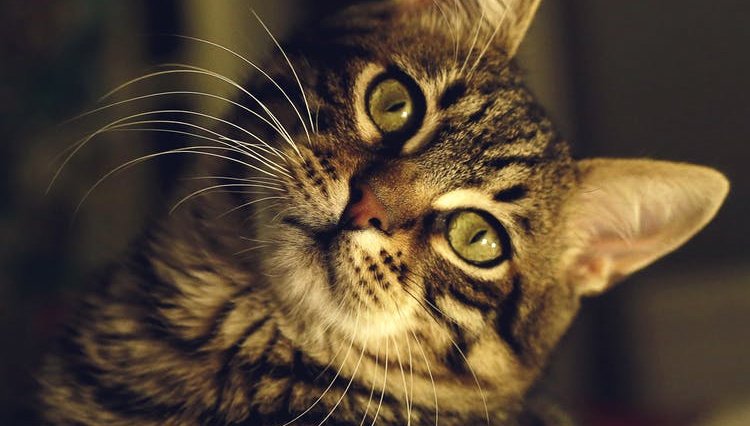
Among other things, kidneys filter the body of toxins. When everything is working right, your cat’s blood is only going to have trace amounts of protein. It’s not a problem.
However, when kidneys begin to fail, protein levels are going to build up. This isn’t good, and left unmanaged is going to cause a domino effect of other health problems.
The research is clear that the survival rate of cats with chronic kidney disease is directly affected by the severity of proteinuria.
So, if your cat has proteinuria it’s certainly a problem you’ll need to address with your vet.
Which leads us to the big, fluffy question. How do you know?
THESE ARE THE SYMPTOMS TO LOOK OUT FOR
Here are the symptoms you should look out for to determine if your cat may have a proteinuria problem.
Weight Loss

Let’s be clear here. A little bit of weight loss is OK. Especially if you’ve changed their diet.
But if you see rapid weight loss, it’s important to get to a vet quickly. Cats have this tendency to crash fast if they’re not eating or drinking right. You can be saving your pal a lot of misery if you act fast when you see rapid weight loss.
More Frequent Drinking and Urination

This is a really clear marker for proteinuria and blood filtration issues. Your clever cat is instinctively trying to deal with the issue by hydrating.
If this is happening, try to get a look at the urine. If it’s foamy this is almost certainly a sign of proteinuria.
Swelling

Again, if you see this, get to the vet sooner rather than later!
TREATMENT FOR PROTEINURIA

I probably have emphasized this enough already, but I’m going to say it again because your cat will thank you for it! Early treatment is important. It makes everything easier to manage.
There’s a bunch of evidence that anti-proteinuria treatment can drastically slow the onset of chronic kidney disease, perhaps even halting it altogether.
Medication Options

There are some effective medications for feline proteinuria. They work by limiting the flow of blood through the kidneys.
The most typically prescribed medications are ACE inhibitors and Angiotensin II receptor blockers. Both these options work by helping relax blood vessels, thus reducing the amount of water the kidney re-absorb.
Here’s the thing though. You are probably going to need to patiently experiment (with the guidance of your vet) to get the levels right.
A Renal Friendly Diet

The other key part of a feline proteinuria management strategy involves carefully reducing the traffic of protein through the body. You do this by gradually introducing a slightly reduced protein diet.
That word slightly is really important here! This is not a case where if reducing protein a little is good then reducing it a lot should be better. In fact, if you go too far you’re going to introduce a whole new set of problems.
Cats are carnivores and they need protein to be healthy. The key is to switch to a lower protein diet, being very sure the protein they’re eating is a high quality lean animal protein.
Supplements
You may also wish to consider putting your cat on vet-approved omega 3 essential fatty acid supplements. Although research with Omega 3 and cats is still at an early stage, we do know they assist humans in dealing with kidney disease.
Not only that take a look at the Scruffy Paws Kidney Vitalize chews, the active ingredients inside them (Astragalus extract & Rhemannia extract) have been scientifically backed to help reduce proteinuria. (Click here to hear to the scientific backing of the product page)
And thats not all, take a look at what some of our customers have said about the Kidney Vitalize Chews:
“I am so happy to have found your Kidney-Vitalize Chews. My 15 year old cat Cagney was losing weight and had his blood tested. It showed he was in the beginning stages of kidney disease. My vet suggested changing his diet to a prescription kidney friendly one. I had also seen your product advertised on social media. I ordered a jar and Cagney loved it and it seems to have given him his appetite back.”
- Nancy H
“My cat bootsie seems to be doing better already! I think she has put on a little weight, more energy and hasnt had any problems urinating. I break up a chew and mix it in with her morning and afternoon feeding. Thank you so much for your product!. And Bootsie thanks you too!"
- Rita A
"I brought my Nicholas 18 years old to the vet today to have his creatine levels checked and they seem to have improved. I've had him on the chews for around a month. I'm totally thrilled with them"
- Anita S
We definitely suggest taking a look at the chews (click the button below to learn more!)
So far, we’ve looked at CKD, how it links to proteinuria and some of the treatment options you can consider in helping your fluff bandit get back on track. In the next part of this article, we’ll look more closely at this issue of a renal friendly diet and how you can help your cat during the sometimes tricky transition to a new diet.



